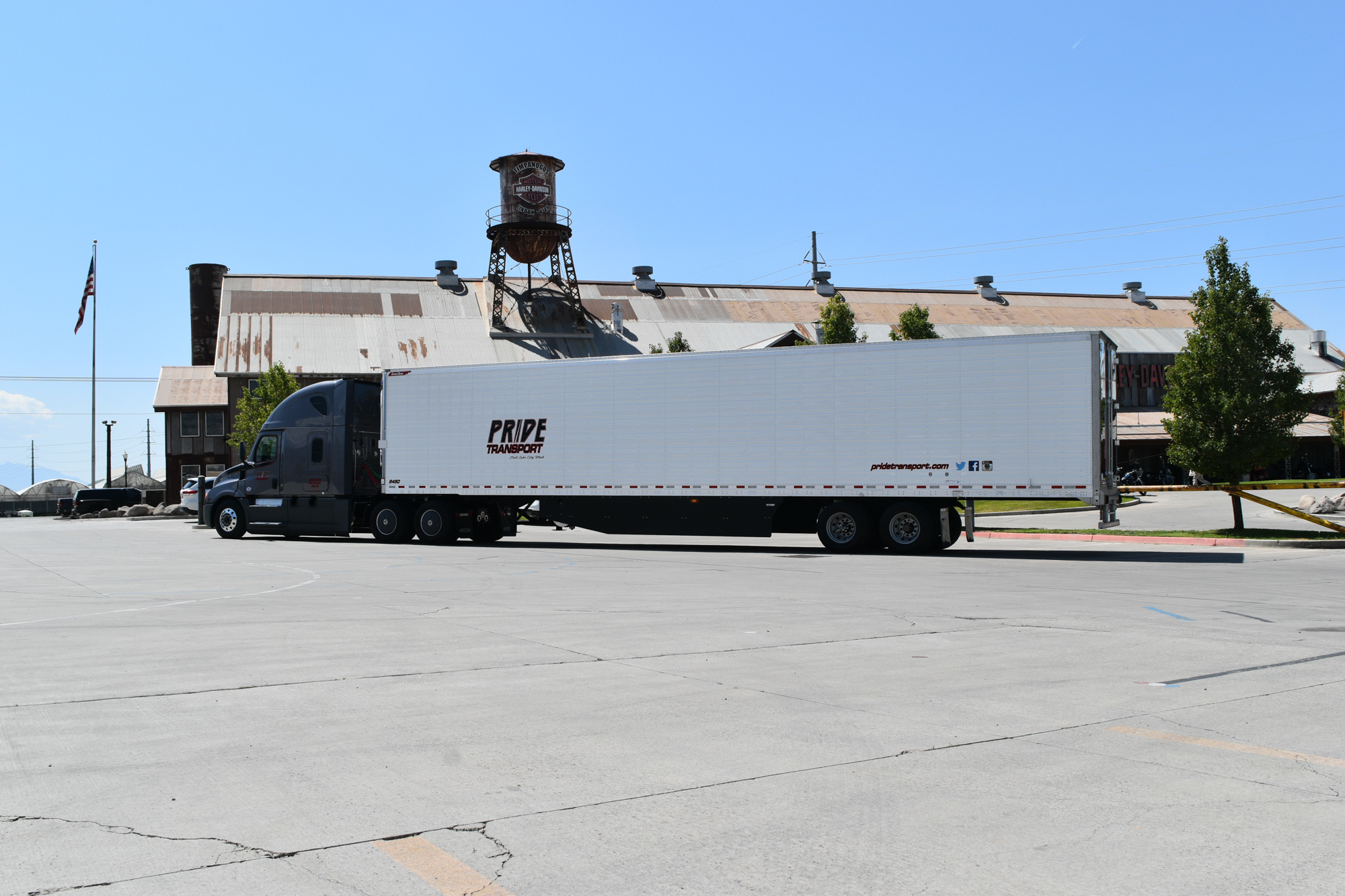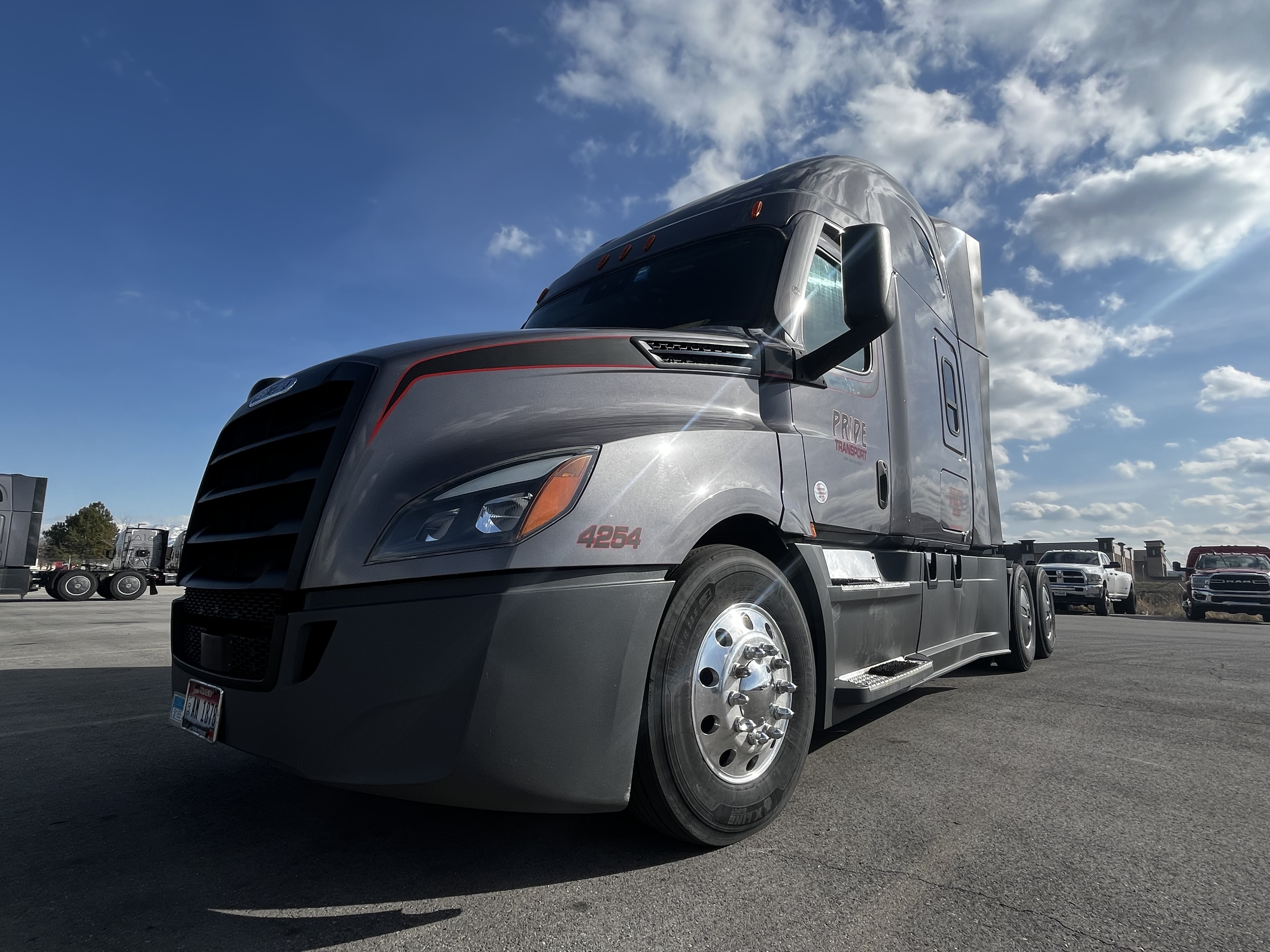by Pride Transport | Dec 05, 2024
Refrigerated trucking, also called reefer transportation, is an important part of the cold chain. These trucks transport goods that can’t go in normal trailers (trailers that can be up to 30°F hotter than outside temperatures). Some goods that need reefer trucks can include temperature-sensitive medications and fresh foods.
Unlike standard semi trucks, reefer trucks maintain consistent temperatures in their trailers, ensuring that products are kept as fresh and healthy as possible no matter how far they need to travel.
Roles as refrigerated truck drivers are essential to the trucking industry and may be something you’ll want to look into for your next job. In 2022, the global refrigerated trucking market was worth $4.2 billion, and it is projected to grow to $8.1 billion by 2031. Reefer trucks are important to the U.S. economy, the cold chain, and consumers across the country. With additional positions opening up and refrigerated transportation needs growing, it is no surprise that this is an industry that will continue to play a pivotal role in resource distribution.
The Importance of Cold Chain Logistics
Cold chain logistics consider the method of storing and transporting goods that are temperature sensitive. These items need to be kept at the appropriate temperature to maintain their quality, safety, and integrity.
Strict temperature control is a necessity for many items transported around the country. For example, medications may need to stay between specific temperatures to maintain their effectiveness, and products such as dairy or meat could spoil or harbor dangerous bacteria if left in the “Danger Zone,” or the temperature range between 40°F and 140°F.
Improper temperature management leads to several negative consequences, such as:
- Spoiled food
- Damaged goods
- Ineffective medications
- Dangerous or toxic bacterial growth
It’s possible for people to become ill, businesses to lose money, and many other problems to occur when the right temperatures aren’t maintained. Using the right transportation methods and tools, such as refrigerated reefer trucks and appropriate packing techniques, ensures these items are managed appropriately throughout the supply chain and are safe for consumers at the final destination.

Why Reefer Trucks Are an Essential Part of Cold Chain Logistics
Reefer trucks are specialized vehicles with high-tech refrigeration systems and temperature control capabilities.
Reefer trucking differs from regular freight transportation in terms of equipment, monitoring, and handling. Inside the vehicle, perishable goods are kept at safe temperatures by being monitored throughout the journey. There are refrigeration units inside, and most reefer trucks have fiberglass bodies that help maintain insulation and improve thermal efficiency by up to 30%. Some also use tools like telematics and GPS tracking to keep track of cargo and to get real-time updates on the products being transported.
Reefer trucks are extremely important to the grocery and food industries — they transport approximately 70% of all the food consumed in the United States. However, it’s important to note that while many reefer trucks transport food, they may also haul items like plants, flowers, cosmetics, and sensitive chemicals that require stable temperatures.
Types of Goods That Rely on Reefer Trucking
There are many types of goods transported with reefer trucking. The most common include:
- Food and beverages: Dairy, meat, seafood, fruits, and vegetables.
- Pharmaceuticals and medical supplies: Vaccines, medicines, and certain medical devices.
- Plants: Fresh flowers that need consistent temperature to maintain quality.
- Beauty and personal care items: Cosmetics, perfumes, and candles that can melt or spoil in high heat.
This is a wide range of products, and reefer trucks need to be adapted to each load. With today’s high-tech refrigeration units, it’s possible to adjust temperatures to suit perishable products in each category, keeping them at the ideal temperatures as they travel across the states.
For example, for items that need to stay far below freezing, cryogenic reefer trucks may offer a solution. These vehicles maintain temperatures as low as -150°C with the use of liquid nitrogen or carbon dioxide, much colder than a standard refrigerated trailer.
Challenges and Innovations in Cold Chain Logistics
The cold chain has many logistical challenges, which is why reefer trucks that have the right innovations make a difference. Common concerns, such as fluctuating weather conditions, stringent driver training requirements, and equipment failures, can lead to product waste, shortages, and financial losses.
However, recent technology and innovations have started to make a difference. Real-time temperature controls and monitoring systems now help maintain the right temperature throughout transport, alerting drivers to problems with temperature control if they occur. Building trucks with galvanized steel chassis, which helps them withstand harsh weather conditions in certain parts of the country, is also effective.
Additionally, advanced insulation, such as with the use of fiberglass, helps ensure the insides of these trucks stay refrigerated at the right temperature. And, with GPS tracking, it’s possible to track goods and ensure they’ve arrived within the appropriate time frame to be both fresh and safe for consumers.
Innovations like these aren’t just important to getting products from one place to another at the appropriate temperature. Companies also continue to improve reefer technology to reduce damage to the environment and increase efficiency. With the technology available today, they can lower emissions and fuel consumption to reduce their environmental impact and keep the supply chain moving.
The Impact of Reefer Trucking on Farm-to-Table and Beyond
Reefer trucking has a direct impact on farm-to-table freshness, helping deliver the fresh produce, meat, and dairy consumers purchase all over the United States. These vehicles transport farm-fresh goods from coast to coast in some cases, ensuring cities, towns, and rural communities have access to the foods they need. They also support local businesses. Reefer trucks, and more often reefer vans, can support small-batch goods, as well as artisanal items such as cakes, candles, and other temperature-sensitive items, on their way to their destinations.
The next time you pick up fresh flowers, food, or medicine, remember the crucial role reefer truck drivers have played in bringing those items to you. These individuals ensure goods make it to retail destinations across the country, support sustainability by reducing waste, and help improve the diversity of products and product availability around the United States.
Find Your Role as a Reefer Truck Driver With Pride
Becoming a reefer truck driver means you’ll be playing an active role in transporting the goods people need and want every day. Whether it’s transporting farm-fresh items or medications, you’ll be taking part in one of the most important jobs in the industry.
Ready to learn more about becoming a reefer driver? Visit us at Pride Transport.